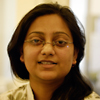“Now is the time for us to move on from the Millennium Development Goals (MDGs) towards Sustainable Development Goals (SDGs), the need of the hour for a greener earth and stable economy,” says professor Jeffery D Sachs.
Sachs, who is director of The Earth Institute, Columbia University and special advisor to the UN secretary-general, was delivering his keynote address at the 12th TERI Delhi Sustainable Development Summit, 2012 last week.
Beginning his address, Sachs said the technology and technological change play an important role in the visualisation of sustainable development. He said it was the need of the hour to overcome deep structural challenges that limit diffusion of technology for sustainable development.
Highlighting the challenges and the need for information revolution for sustainable development, Sachs said the international laws were stymied by the interest groups. He said technology was the key to understand the arithmetic of the anthropocene, i.e., the epoch after the industrial revolution when humanity began to have an impact on the environment.
Taking forward the work under the MDG post 2015, he discussed in detail the four pillars of the SDG, which he said was the next step to take: ending extreme poverty, ensuring environmental sustainability, social inclusion (such as gender equality, jobs, happiness) and good governance. He said that information and communication technology (ICT), especially social networking websites, has allowed beginnings of a revolution for good governance.
Prof Sachs said that the role of ICT in terms of good governance can already be seen in various parts of the world as people now mobilise through various social platforms present on the social media. He said that ICT not only provides social mobilisation, it can also give you new methods of political representation and governance. It also gives civil society an oversight of the governance. Sachs said that ICT can be instrumental in providing a global sustainable development network which can help in delivering good governance.
Explaining more about the transformative role of ICT, Sachs in his address said that to end extreme poverty we should tap the power of e-health where information can be shared about the wellbeing on a virtual platform. Prof Sachs said that education holds the key to any development process and we should see to it that there are more virtual classrooms to provide a good platform to share smart ideas and enhancing the reach. He also said that implementation of ICT in supply chain, logistics and ubiquitous banking will also result in ending of poverty.
Coming to the point of environmental stability, Sachs said that agrarian ecology, transportation, telepresence, smart grids in checking and enhancing efficiency, metering and integration of renewable, green buildings, remote sensing and emergency responses – all can be integrated through ICT resulting into a cleaner and greener environment.
Comparing the spread of wireless technologies to the diffusion of renewable technology, he said that making technology profitable has been instrumental for its widespread diffusion for achieving practical goals. He further added that the key for achieving sustainable development objectives would lie in strengthening public institutions, attracting private led technology and provision of public financing for underlying science.
Drawing from the experience of international treaties and referring to the upcoming Rio+20, he stressed that it is important to stay focused on practical action as a driver for sustainable development and not simply relying on international frameworks and treaties which are bound by timeframes often not aligned with global realities. He cited MDGs as an example which has been able to mobilize mass effort without any legal binding.
Making a special reference to the United Nations Broadband Commission he stressed that broadband can be a core platform for sustainable development. He mentioned the transformative role of ICT, particularly the broadband, can play a major role in achieving the four pillars of SDG.

